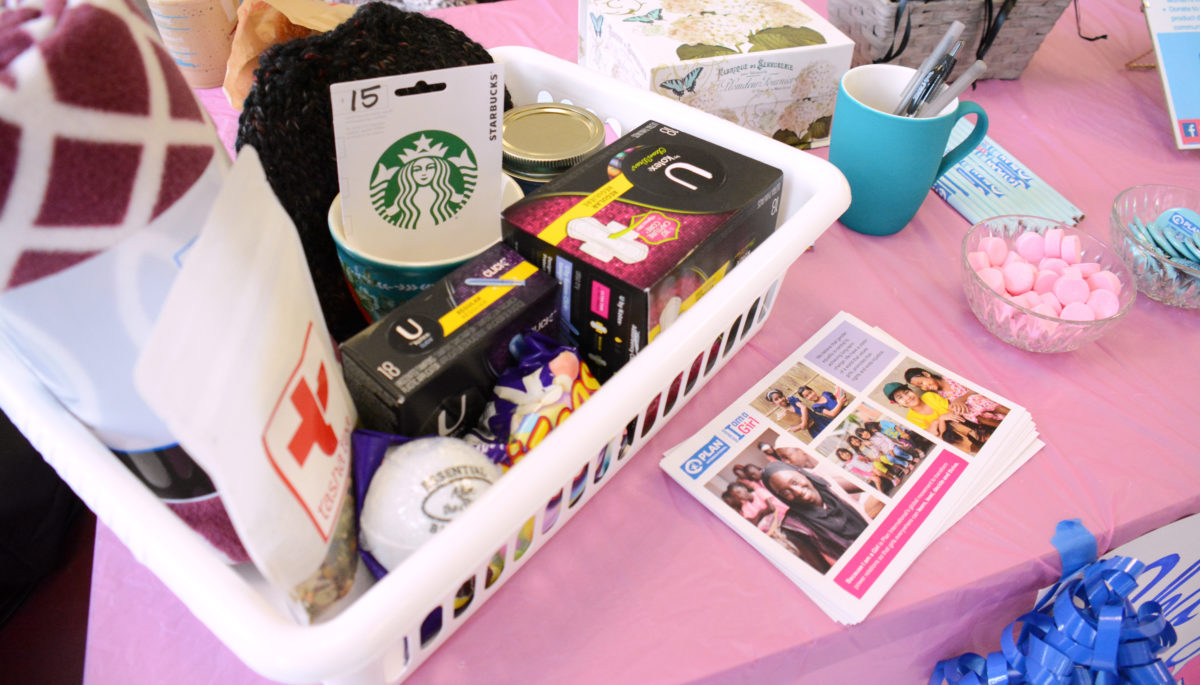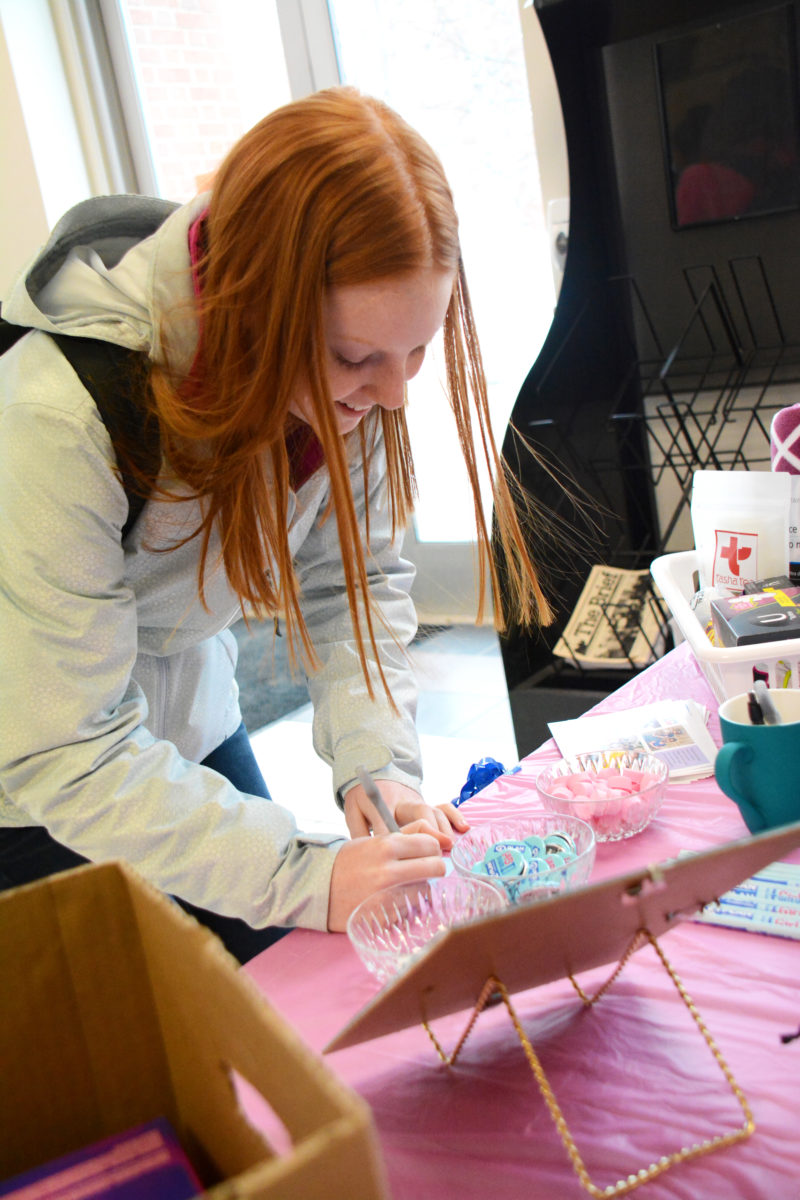Partnered with Plan Canada, St. Thomas University’s Champions of Change club held a Menstruation Matters campaign in James Dunn Hall on March 19 and 22 to raise awareness about period shaming and combat myths about periods.
The campaign encouraged people to sign a pledge that would show their support for women. They also collected hygiene products for their drive to Free Flo New Brunswick, which helps women who are experiencing financial struggles or homelessness.
“You need both men and women in this conversation … to remove the stigma,” said Rachel Slipp, president of STU Champions of Change club.
Donations for women’s literacy training were welcome as well. To encourage more people to participate in the movement, Slipp introduced a raffle with a period basket as the prize. It included all the amenities someone would need during the menstrual cycle like tampons, pads, a bath bomb and cozy blanket.

Adriel Miller, who recently joined STU Champions of Change, said menstrual misconception is a global issue that all women face.
Miller is a second-year student working toward a job that combines law and women’s rights. She feels it’s important to push for women’s rights and she was glad to hear in Canada the GST on feminine hygiene products was removed in 2015. However, the Tampon Tariff still exists under the 9619.00 HS code, which includes pads and tampons, napkins and napkin liners for babies and similar articles, of any material.
Emily DesRoches, fourth-year student at STU, said she felt embarrassed about purchasing pads and tampons when she was younger because of the stigma.
“When I was younger, I always made my mom go and get my pads and tampons because I was too embarrassed … but now I don’t really care.”


A study done by THINX, a New York-based company that makes women’s hygiene products, has shown that 58 per cent of women have felt embarrassment from being on their period and 42 per cent of women have been shamed for being on their period. In most East Asian countries more pads are purchased than tampons because there is a negative belief surrounding tampons’ invasive application method.
“It’s a topic pushed under the rug,” said Miller. She said many women would find such a normal and natural process embarrassing due to the stigma surrounding it.
“Many people look at it as something bad or embarrassing.”
The campaign received 111 packages of pads and tampons and had 26 people sign the Plan Canada pledge to end period shaming.

